Wellness professionals generally agree that a health risk assessment (HRA) is the foundation of any results-oriented wellness program. For over 30 years, Wellsource has been recognized as the leading provider of quality HRAs in the industry. But how much difference is there between HRAs? How critical is the decision of which HRA to use? And what about the "free" HRA that some insurance companies offer?
The reality is, not all HRAs are created equal. There are 5 critical factors to consider when looking at an HRA:
1. Scientific Validity
The set of questions asked should be determined by qualified health professionals and should be based upon time-tested, scientific research. It should be written with very simple wording that is easy to understand. And the best HRAs should be peer-reviewed and independently validated. At Wellsource, when we create an HRA, every letter of every question is closely scrutinized internally and then subjected to stringent external review. In fact, all our HRAs are certified by the National Committee for Quality Assurance (NCQA).
2. Flexibility
The HRA should be available both online and in a paper/pencil format. It should be customizable so questions specific to an organization can easily be added and reported on. You should be able to control access to the HRA and how often participants may take a new one. Wellsource has the most customizable HRA on the market and truly gives a wellness program administrator all the flexibility they need to run a successful program.
3. Support
A health risk assessment provider should stand behind their product with a support team that is responsive, knowledgeable, and willing to spend the time necessary to help you feel comfortable with your program. At Wellsource, we give you access to our entire team – from a highly-skilled technical support team that is only a phone call away, to our credentialed health professionals who will take the time to explain the science behind our HRA.
4. Individual Reporting
A participant who takes the time to complete a health risk assessment should be given a detailed, personalized analysis of their health status; not just a regurgitated summary of their answers. But it should go beyond analysis to include real education on how to reduce health risks, increase longevity, and enhance quality of life. The Wellsource health risk assessment was designed with an invaluable companion tool, the Life Change Library™. This educational resource is seamlessly presented throughout our individual report to give participants an engaging way to learn more about their specific risks and understand what they can do to live healthier.
5. Group Reporting
Understanding the overall health of your organization is the first step you must take as a wellness administrator to create positive change. The health risk assessment should provide substantive analysis of your organization's health as well as access to the raw data so targeted interventions and educational campaigns can be offered. With Wellsource, you own your data. You can access it any time, as often as you want, for no additional cost.
When looking at HRA providers - if you are considering using your insurance company - here are two additional considerations:
- Who owns the data if you switch insurance carriers? Companies that tie their HRA to their insurance provider often lose their data when they switch providers, which makes it difficult to maintain continuity in their wellness program.
- How will it affect your participants' trust in your program? Some employees may be hesitant to participate or answer health-related questions truthfully for fear that the information they provide will impact their insurance rates.
The health risk assessment is the foundation of any wellness program and is crucial to its success. Settling for just any HRA, even that "free" one, might not be such a bargain after all.






